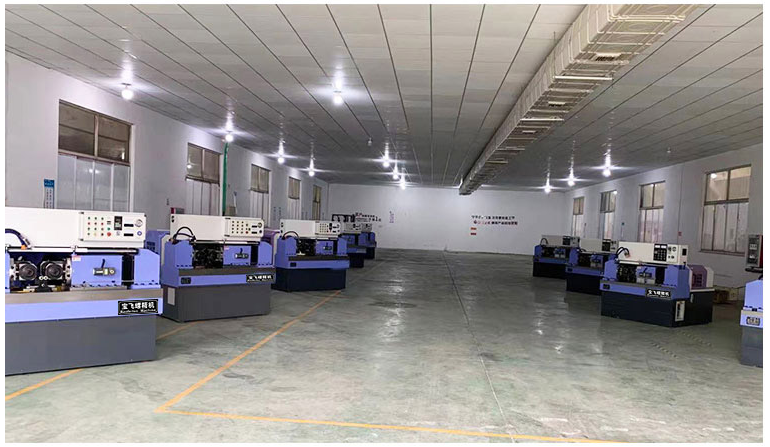
-
 Afrikaans
Afrikaans -
 Albanian
Albanian -
 Amharic
Amharic -
 Arabic
Arabic -
 Armenian
Armenian -
 Azerbaijani
Azerbaijani -
 Basque
Basque -
 Belarusian
Belarusian -
 Bengali
Bengali -
 Bosnian
Bosnian -
 Bulgarian
Bulgarian -
 Catalan
Catalan -
 Cebuano
Cebuano -
 Corsican
Corsican -
 Croatian
Croatian -
 Czech
Czech -
 Danish
Danish -
 Dutch
Dutch -
 English
English -
 Esperanto
Esperanto -
 Estonian
Estonian -
 Finnish
Finnish -
 French
French -
 Frisian
Frisian -
 Galician
Galician -
 Georgian
Georgian -
 German
German -
 Greek
Greek -
 Gujarati
Gujarati -
 Haitian Creole
Haitian Creole -
 hausa
hausa -
 hawaiian
hawaiian -
 Hebrew
Hebrew -
 Hindi
Hindi -
 Miao
Miao -
 Hungarian
Hungarian -
 Icelandic
Icelandic -
 igbo
igbo -
 Indonesian
Indonesian -
 irish
irish -
 Italian
Italian -
 Japanese
Japanese -
 Javanese
Javanese -
 Kannada
Kannada -
 kazakh
kazakh -
 Khmer
Khmer -
 Rwandese
Rwandese -
 Korean
Korean -
 Kurdish
Kurdish -
 Kyrgyz
Kyrgyz -
 Lao
Lao -
 Latin
Latin -
 Latvian
Latvian -
 Lithuanian
Lithuanian -
 Luxembourgish
Luxembourgish -
 Macedonian
Macedonian -
 Malgashi
Malgashi -
 Malay
Malay -
 Malayalam
Malayalam -
 Maltese
Maltese -
 Maori
Maori -
 Marathi
Marathi -
 Mongolian
Mongolian -
 Myanmar
Myanmar -
 Nepali
Nepali -
 Norwegian
Norwegian -
 Norwegian
Norwegian -
 Occitan
Occitan -
 Pashto
Pashto -
 Persian
Persian -
 Polish
Polish -
 Portuguese
Portuguese -
 Punjabi
Punjabi -
 Romanian
Romanian -
 Russian
Russian -
 Samoan
Samoan -
 Scottish Gaelic
Scottish Gaelic -
 Serbian
Serbian -
 Sesotho
Sesotho -
 Shona
Shona -
 Sindhi
Sindhi -
 Sinhala
Sinhala -
 Slovak
Slovak -
 Slovenian
Slovenian -
 Somali
Somali -
 Spanish
Spanish -
 Sundanese
Sundanese -
 Swahili
Swahili -
 Swedish
Swedish -
 Tagalog
Tagalog -
 Tajik
Tajik -
 Tamil
Tamil -
 Tatar
Tatar -
 Telugu
Telugu -
 Thai
Thai -
 Turkish
Turkish -
 Turkmen
Turkmen -
 Ukrainian
Ukrainian -
 Urdu
Urdu -
 Uighur
Uighur -
 Uzbek
Uzbek -
 Vietnamese
Vietnamese -
 Welsh
Welsh -
 Bantu
Bantu -
 Yiddish
Yiddish -
 Yoruba
Yoruba -
 Zulu
Zulu
Types and Pricing of Thread Rolling Machines for Various Applications
Types of Thread Rolling Machines and Their Price List
Thread rolling is a widely utilized manufacturing process that enables the efficient creation of threads on various objects, playing a pivotal role in the automotive, aerospace, and general engineering industries. With the rise in demand for threaded parts, various types of thread rolling machines have been developed. Understanding these machines and their price structures is crucial for manufacturers aiming to optimize their production processes.
Understanding Thread Rolling Machines
Before diving into the types and prices of thread rolling machines, it's essential to understand how these machines operate. Thread rolling involves deforming a cylindrical workpiece under pressure to produce external threads. Unlike traditional machining processes that cut material away, thread rolling is a cold forming method which results in stronger threads due to increased material density and structural integrity.
Types of Thread Rolling Machines
1. Flat Die Thread Rolling Machines One of the most common machines is the flat die style. These machines utilize flat dies to create threads on cylindrical parts. This method is ideal for producing external threads on various materials and is known for its efficiency and versatility. Prices for flat die thread rolling machines typically range from $15,000 to $50,000, depending on the machine’s size, capacity, and features.
2. Planetary Thread Rolling Machines Planetary thread rolling machines feature multiple rolling dies that move in a planetary manner around a workpiece. This type of machine is particularly effective for producing high-volume threaded components and can handle various sizes of workpieces. The prices for planetary machines can be considerably higher, generally ranging from $50,000 to $150,000, based on the complexity and the specific requirements of the manufacturing environment.
3. Radial Thread Rolling Machines These machines apply pressure from multiple points around the workpiece, allowing for the creation of internal and external threads simultaneously. Radial thread rolling is suitable for producing complex thread forms and is often used in high-precision applications. This type of machine can range from $20,000 to $80,000 depending on its capabilities and the specific intricacies involved in the production.
types of thread rolling machine pricelist

4. CNC Thread Rolling Machines CNC-controlled machines are designed for automated and high-precision thread rolling. They can be programmed to produce a wide variety of thread sizes and forms, making them ideal for more advanced manufacturing requirements. Computer Numerical Control (CNC) machines tend to be the most expensive option, often costing between $100,000 and $300,000 because of their advanced technology and productivity.
5. Multi-Station Thread Rolling Machines For high-volume production scenarios, multi-station machines can mass-produce different threads simultaneously. These machines significantly enhance productivity, but they can require a substantial initial investment. Prices typically range from $75,000 to $250,000, depending on the number of stations and the technology used.
Factors Affecting Prices
Several factors can influence the price of thread rolling machines
- Size and Capacity Larger machines with the capability to handle wider and heavier workpieces tend to cost more. - Technology Machines equipped with advanced technology such as automation, computer controls, and user-friendly interfaces often carry higher price tags. - Brand Established brands with a reputation for quality and reliability may charge a premium for their machines. - Customization Customized machines designed for specific applications or production requirements can significantly increase costs.
Conclusion
Selecting the right thread rolling machine requires careful consideration of your manufacturing needs, budget, and the type of threaded components you intend to produce. The investment in a suitable thread rolling machine can lead to significant productivity gains and improved product quality, making it an essential decision in the manufacturing process. With the diverse range of machines available — from basic flat die models to advanced CNC machines — manufacturers can find solutions tailored to their specific needs and production volume, ultimately supporting their business goals and enhancing their competitive edge in the marketplace.
